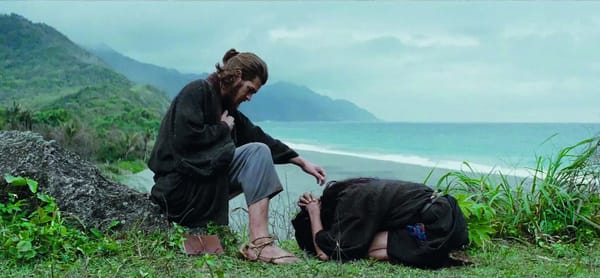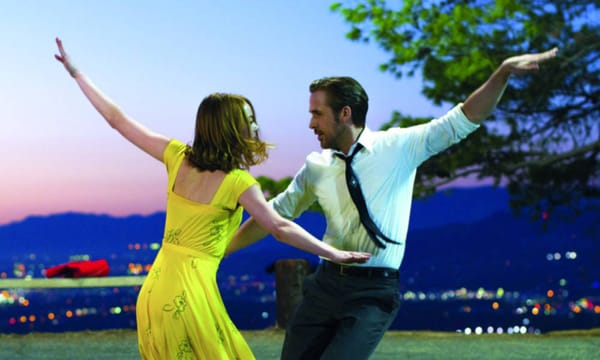Manchester by the Sea
A restrained exploration of grief, with exceptionally strong performances from Michelle Williams and Casey Affleck, Manchester by the Sea is the most moving film of the year.

If you were to rely on the list of previous winners of the Best Actor Oscar as a definitive list of cinema history’s greatest performances, you would probably have one clear go-to when thinking of acting techniques for a sure-fire win (apart from being white): shouting. It has seemed throughout the years that the only performances by leading actors that really catch awards committees’ attention are the ones that go off with a flash and a bang – nuance and subtlety be damned. In fact, Leonardo DiCaprio’s landmark win last year for his role in The Revenant saw him in a performance that featured more yelling and exasperated grunting than actual speech. So upon hearing the amount of Oscar buzz currently orbiting Casey Affleck for his performance in Manchester by the Sea, you might be led to believe, as I was, that this year might end up no different. Imagine my shock when by the time the movie was over I had counted just one scene – a very short one at that, and only about ten minutes into the 137-minute runtime – in which Affleck raised his voice. Where a different actor may have put on a grand gesture, we see instead a slight furrowing of the brow; pursed lips and downward-looking eyes appear where we would usually expect an immense emotional outpouring. And yet this is no shortcoming: the immense delicacy of every movement, turn of phrase, and pained facial expression (and believe me, they are pained) adds up to a masterclass in restraint and subtlety in a performance that conjures the likes of Laurence Olivier or Marlon Brando in his later years. It’s a masterwork inside another masterwork – the film itself.
Manchester by the Sea begins as Lee Chandler (Affleck) – a quiet, bitter, calcified janitor in Quincy, Massachusetts with a knack for starting fights – receives a phone call informing him of the death of his brother Joe (Kyle Chandler). He travels to the small town of Manchester-by-the-Sea to break the news to Joe’s teenage son Patrick (Lucas Hedges), but learns upon examining his brother’s will that he has been named as Patrick’s guardian. As fragments of the family’s past begin to appear in flashback, and we learn more and more about the troubles Lee and Joe have faced, we understand the deep grief that sits coiled at the heart of this film. I’m going to avoid details as much as possible, but you should be warned now: Manchester by the Sea is devastating to watch.
But, surprisingly enough, it also has more laughs in it than any comedy I’ve watched for a while – not in any sort of dark comedy sense, but rather because the script by Kenneth Lonergan, who also directed, is bristling with conversations so naturalistic and organically funny that the slightest of reactions or the smallest of quips between friends hit like the punchline to a stand-up’s best joke. Perhaps this is also because the characters having these conversations are so perfectly realised – the film is populated by such well-sketched people that within an extremely short time from meeting them they felt like close. It even gave me the all-too-rare treat of having a moment to recollect, some twenty-five minutes into the film, how glad I was that I had so much more time to spend with these wonderfully flawed people I was watching on-screen.
There may be yet another reason for this, however: the all-round, across-the-board brilliance of the performances. This may well be the performance of Affleck’s career (a description I certainly don’t use lightly as a huge fan of his), but he is backed up on all sides by the supporting players: Lucas Hedges pitches Patrick perfectly, with just the right mix of adolescent cockiness, plucky humour, and tender vulnerability; Michelle Williams achieves the highest minutes-of-heartbreak-time-to-minutes-of-screentime ratio since Anne Hathaway’s performance in Les Miserables; and Kyle Chandler reasserts himself as one of the most likeable men to ever grace a screen.
It’s difficult to forget the feeling you carry after seeing a truly great, truly sad film. I might just be a bit of a heartless bastard, but for me, crying during the first viewing of a movie is an extremely rare occurrence – 12 Years A Slave, The Lives of Others, and – most recently – I, Daniel Blake are among the small handful of films that have managed it. But what’s even more rare is that peculiar, gravely, sombre feeling that lingers after moments like the ending of Fruitvale Station, or the point at which Bridge To Terabithia’s plot takes a turn (if you’ve seen it, you know exactly what I mean): one part quiet hope, nine parts utter dejection. Truth be told, I have never felt it as strongly or for so long as I did after I first saw Manchester by the Sea. It’s one thing to make an easy tear-jerker of a film, but it takes an enormous amount of talent to tell a story this crushing and make it as immensely watchable as it is throughout, for so many reasons. I’ve picked my brain over and over to find a single fault in this film since my first viewing of it, and I simply cannot. Lonergan has achieved something wholly incredible. It probably won’t be the 2017 film that I rewatch the most – La La Land already has a pretty steadfast hold on that spot – but I will be astounded if I see a more moving film this year.









